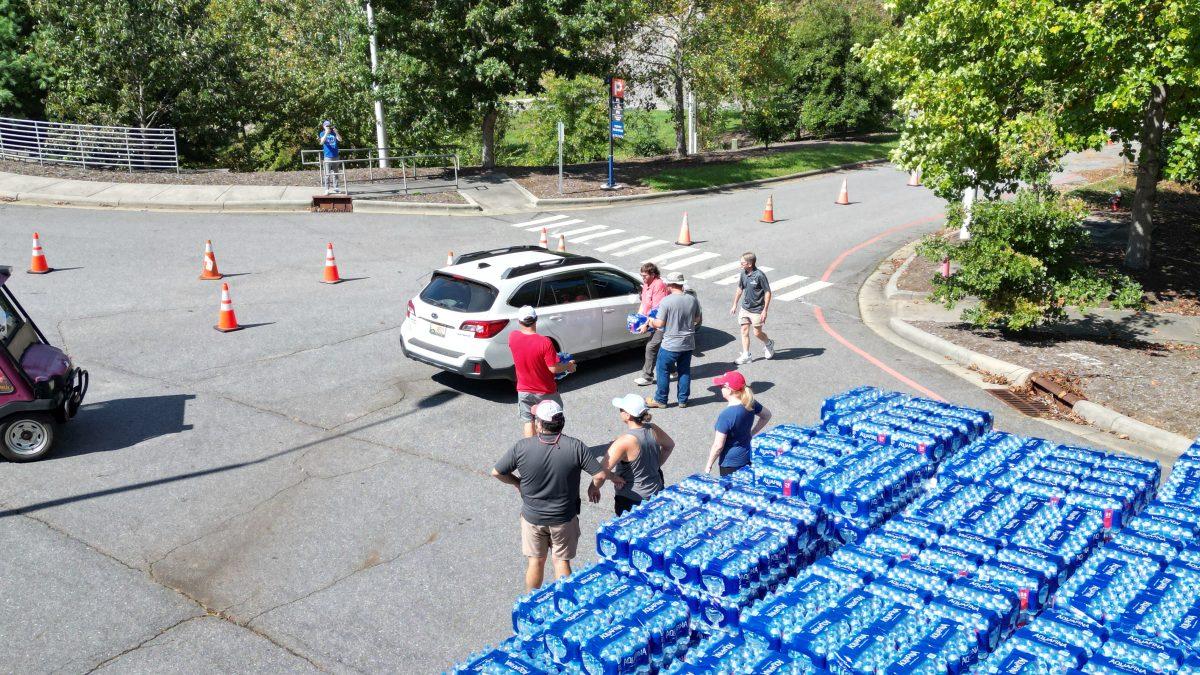NC State is mobilizing resources to support students and assist sister campuses in the wake of Hurricane Helene’s devastating impact on western North Carolina.
The hurricane caused widespread flooding and catastrophic damage across the western part of North Carolina, leaving at least 230 dead across six states. NC State has identified over 2,700 of its students who are from counties affected by the disaster declaration.
“Our hearts are broken for those in our community who are from areas in North Carolina and beyond that were in the path of this brutal storm,” Chancellor Randy Woodson said in a message to the campus community. “Our thoughts are also with our fellow university communities that were devastated with flooding in the western part of our state.”
The University is offering a range of support services to impacted students, including counseling, financial assistance and academic accommodations.
Monica Osburn, executive director of the Counseling Center, said students may be experiencing a variety of emotions in the aftermath of the hurricane.
“They’re going to be feeling a bunch of different ways and probably change how they’re feeling multiple times in the same day,” Osburn said. “When you’re dealing with that type of trauma, grief and loss, it’s not linear.”
The Counseling Center is providing drop-in support spaces in Campus Health. Osburn emphasized that students should not hesitate to seek help, even if they feel their situation is not as severe as others.
“It doesn’t matter how small they think what they’re going through is,” Osburn said. “Sometimes students will say, ‘I haven’t lost everything,’ or ‘My situation isn’t as bad,’ and you still need help, and you still need support, and you’re still worth reaching out for that help and we want to help.”
In addition to on-campus resources, NC State is extending support to other UNC System schools affected by the hurricane. The University sent a team of nine staff members to UNC-Asheville to assist with recovery efforts.
Justine Hollingshead, assistant vice chancellor and senior director for strategic initiatives and assessment at NC State, was part of the team that traveled to Asheville. She said the campus did not suffer major structural damage but is facing significant infrastructure challenges.
“The biggest challenge is the infrastructure — no water, no power, no phone, no internet,” Hollingshead said. “The no water is kind of a deal breaker. You can’t really function without water, and you can’t safely have people be in an environment like a college campus if you don’t have that infrastructure in place.”
The NC State team helped with various tasks, from checking students out of dorms to distributing supplies. Their presence also allowed UNC-Asheville staff to take breaks and tend to personal matters.
NC State is offering its counseling services to UNC-Asheville students, allowing them to access support services by showing their student ID. Osburn said similar offers have been extended to Western Carolina University and Appalachian State University.
The Wellness and Recreation Center is offering services to students from the affected colleges. Hollingshead said a student athlete from a private college in western North Carolina was able to be housed by University Housing and use the gym while he stayed in Raleigh.
The University’s efforts extend beyond direct campus support. Hollingshead said NC State’s agricultural extension and research facilities in the Asheville area are being used in recovery efforts, providing staging areas for equipment and supplies.
For students at NC State who may be struggling, the Office of Student Life and Advocacy is serving as a central point of contact. The office can connect students with various resources, including academic support, financial assistance and mental health services.
Hollingshead stressed the importance of students reaching out for help if needed.
“We’re not going to judge someone and say, ‘Well, you’re not impacted the same way as if you were from there,'” Hollingshead said. “Some students are just going to need support and help regardless, and we’re going to do that.”
As the recovery process continues, NC State officials said they remain committed to supporting their own students while also assisting the broader community affected by Hurricane Helene.
“NC State absolutely has a responsibility to be a leader and a role model in the community and to help provide support to our students and to our sister campuses across the UNC System,” Hollingshead said. “That’s just what we do, giving back as a land grant university.”
The Counseling Center is offering drop-in spaces on Oct. 9 from 11:00 a.m. to 1:00 p.m. and Oct. 17 from 12:00 p.m. to 2:00 p.m. in Campus Health 2301.













